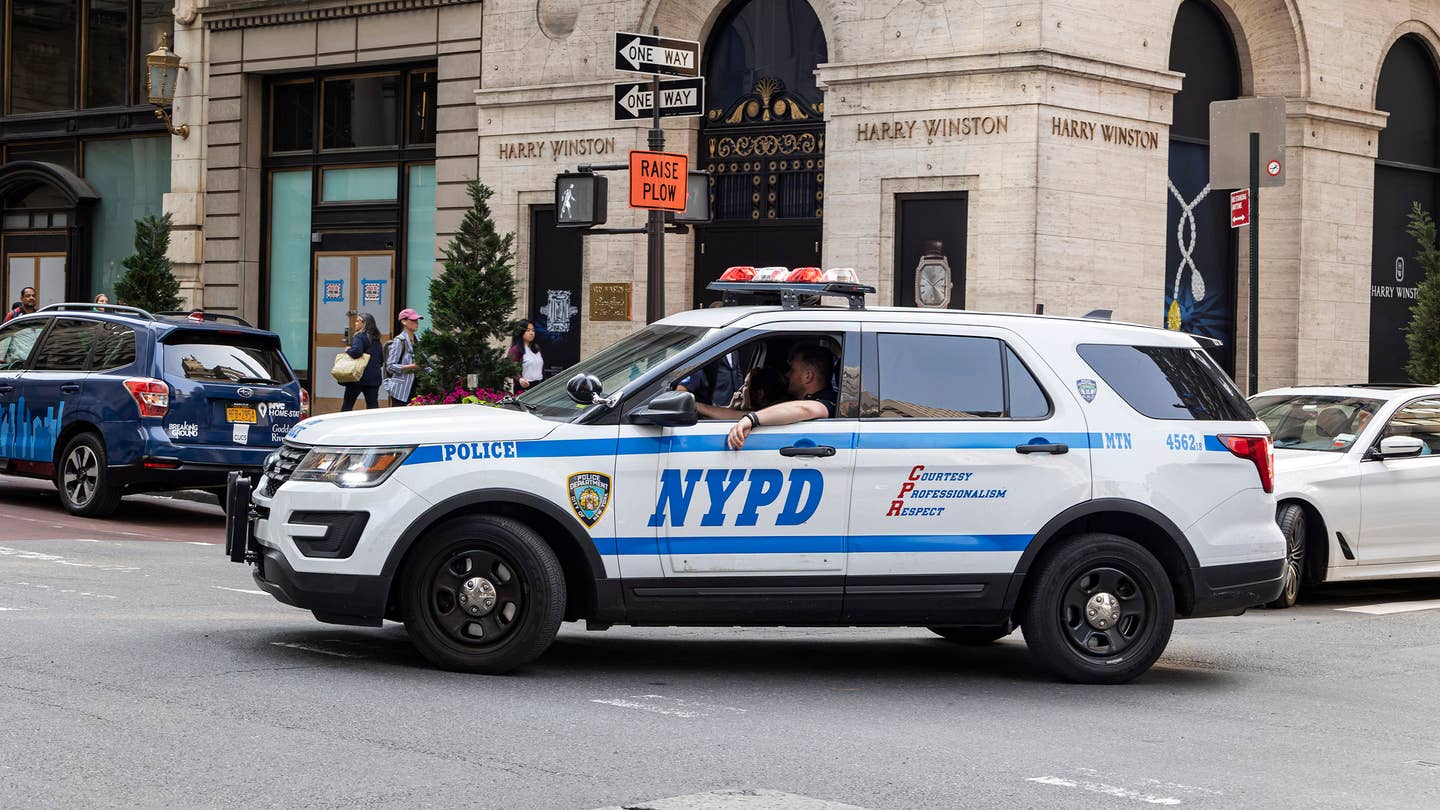The launchers are typically mounted to the front of cop cars and can fire darts at up to 30 mph.

One of the most common spy movie tropes is the protagonist’s ability to tag a suspect with a discreet tracking dart from afar. That way, they can covertly track the baddies wherever they go. Well, it’s no longer a spy movie trick—it’s reality, as police departments have begun tagging fleeing vehicles with GPS trackers, eliminating the need for high-speed pursuit.
Old Westbury Police Department in New York is using vehicle-mounted launchers that fire foam projectiles with a heat-activated sticky glue at fleeing vehicles in a car chase. The projectiles have wireless GPS tracking systems built into them, which allow police to track the car’s whereabouts. The launchers and darts are made by StarChase, who also leases out handheld units to the NYPD, among other departments. The idea is to eliminate car chases, which are dangerous and often put the public at risk.
“Police pursuits are very much discouraged,” said Old Westbury Police Chief Stuart Cameron, according to Gothamist. “The statistics just speak for themselves … suspects are getting hurt, officers are getting hurt, and even members of the public are getting killed and injured in these pursuits.”
This is exactly the kind of situation the trackers are meant to prevent the need for. AP News via YouTube
The launchers mount to the front of police cars, so cops only have to chase a fleeing vehicle for long enough to tag it with a sticky dart, and then they can back off and track its location. Compressed air fires the darts, and they’re said to travel at about 30 mph and stick without leaving any damage.
It isn’t only on Long Island where these tracking darts are used, though. Police departments in Michigan, Tennessee, Texas, Washington State, and more have begun fitting them. However, the usage of these trackers on civilian vehicles raises questions about their constitutionality, as some have argued that they violate Fourth Amendment rights. In a 2012 Supreme Court case, U.S. vs Jones, it was unanimously ruled that GPS tracking a car without a warrant constitutes an illegal search, breaching the Fourth Amendment. However, the American Civil Liberties Union (ACLU) has stated that there isn’t an issue with GPS tracking darts, “assuming that [they’re] used in the kind of way that everybody probably imagines,” in the words of Jay Stanley, ACLU senior policy analyst. Put another way, if the dart’s fired during a car chase with a fleeing vehicle, its use is likely legal so long as the tracker is then removed after the vehicle’s been caught.
GPS tracking darts aren’t all that new, but they’re becoming more widespread among law enforcement. On one hand, it strikes a little dystopian that police are getting in the habit of tracking vehicles this way, but on the other, when used properly, they have the potential to spare everyone a dangerous crash.
Got tips? Send ’em to tips@thedrive.com


